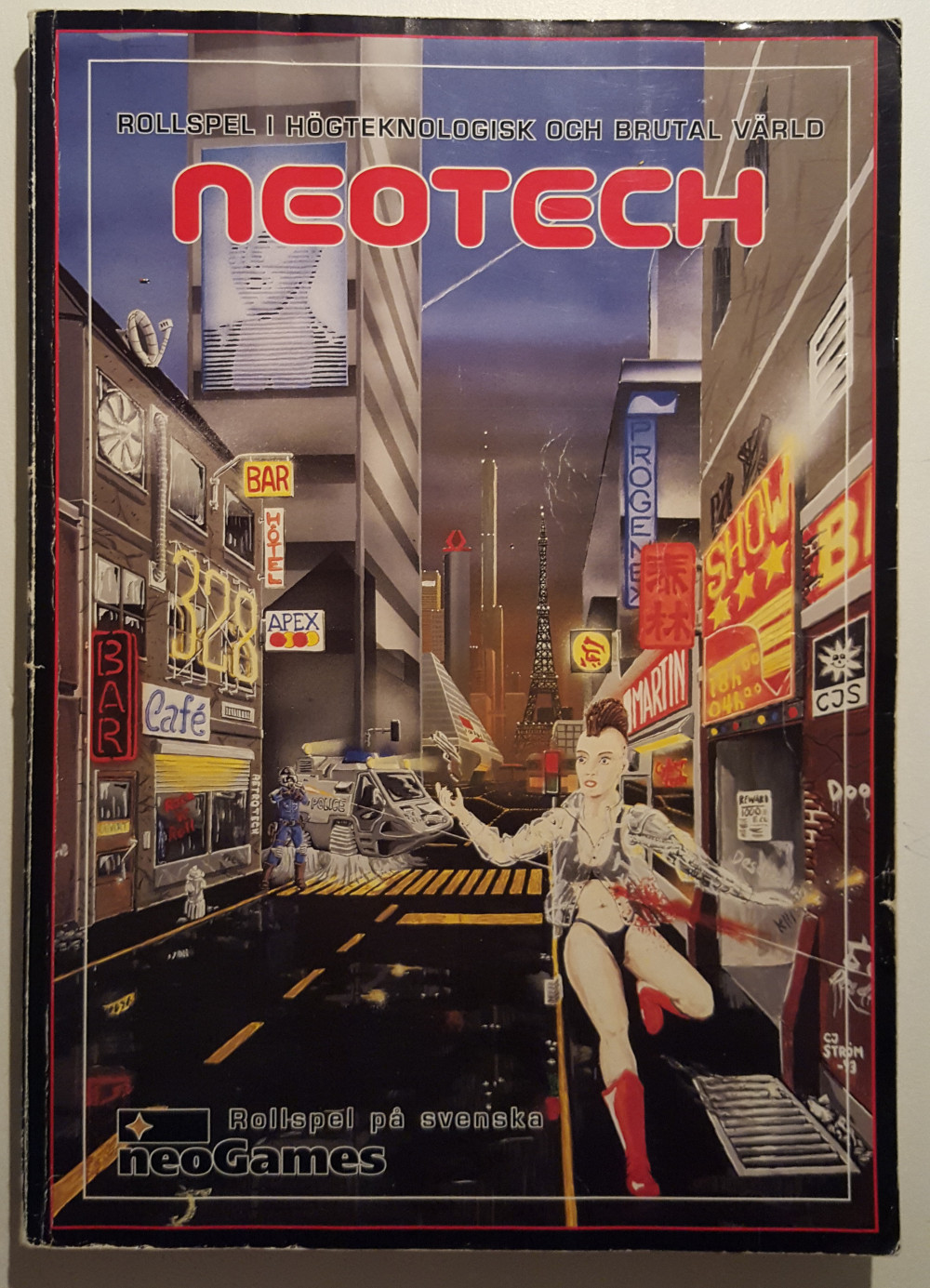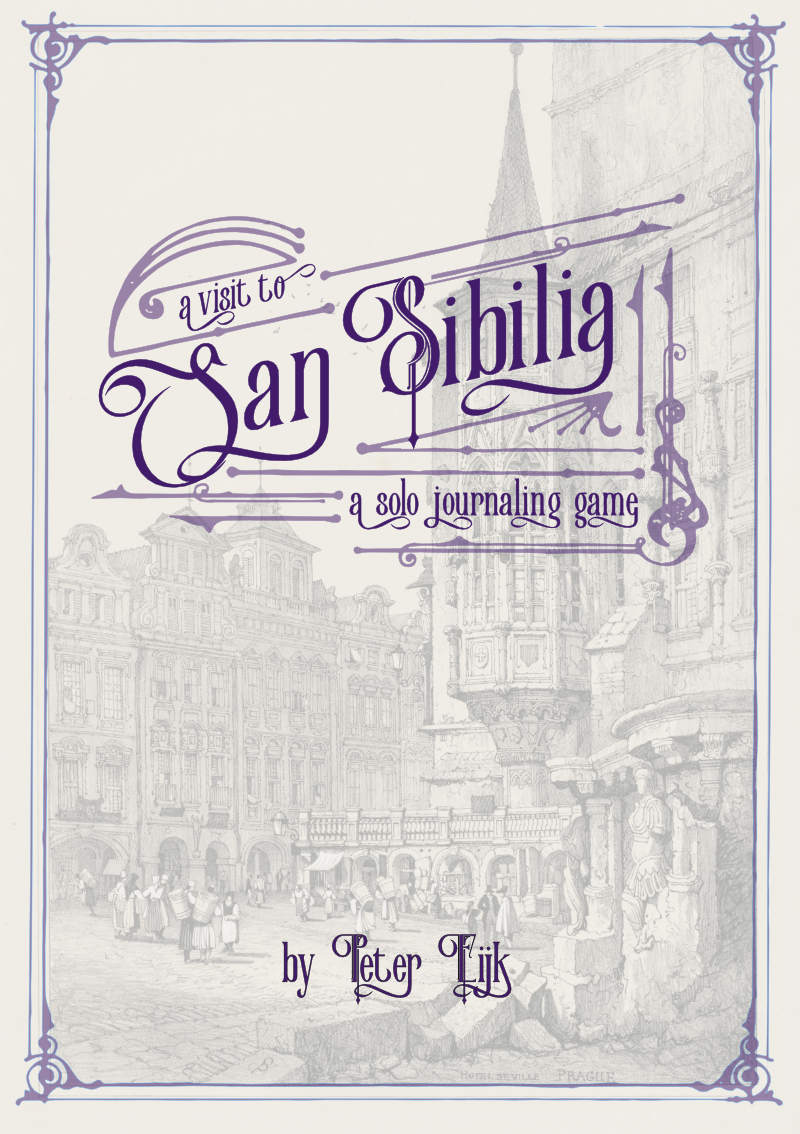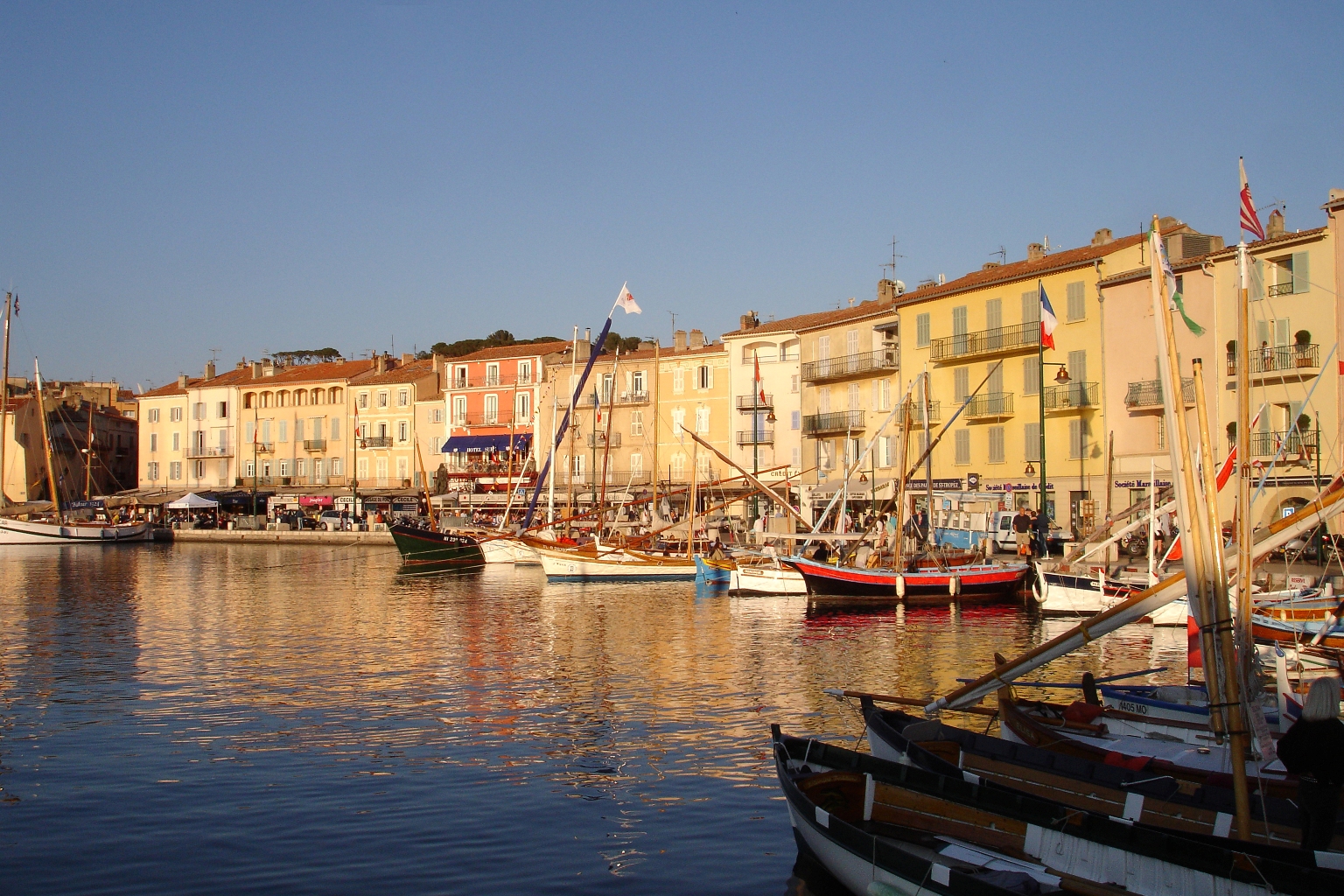I apologize in advance. This post is going to be fairly self-centered, but it is primarily an attempt to describe my personal preferences when it comes to role-playing, and secondly to link them to certain discussions, or discourses perhaps, about how role-playing games can be played.
(His)story in tabletop role-playing
 |
| The first edition of Neotech ca.1993 |
I started playing role-playing games in the early 90s. A norwegian translation of the 1983 Red Box version of Basic D&D was the first game i played, but equally important in my early gaming was the first edition of Swedish games Neotech and Viking. A diceless Norwegian game Imperium 3000 and the 1991 edition of Drakar och Demoner (which is THE swedish rpg) also served as an early introduction to the hobby.
I can't list all the games i read and played in my teens but seminal ones were 4th edtion Pendragon, AD&D 2nd edition, Kult, Warhammer FRP, Star Wars D6, EarthDawn and Ars Magica. The 90s closed out with the arrival of 3rd edition D&D.
For much of the early 00's 3rd ed. D&D and later Pathfinder, alongside Pendragon, Ars Magica, Vampire the Masquerade and homebrewed games using the Fudge system was what i played and ran. I remember being aware of the outwardly stated different purposes of the "storytelling" games like Ars Magica and Vampire, and the more crunchy dispositions of D&D's 3.ed, but i don't remember it actually affecting the play style of my games (or that of my firends) that much. I think there was a rebellious ethos, connected to the fact of how marginal a hobby role-playing games were in Norway, that said "screw what the book says, we know how to do it cooler." It was a punk attitude, rules were, in some way, bad or at least uncool. In short - "system didn't matter" 1, or maybe rather "we don't want system to matter".
 |
Norwegian diceless roleplaying-game
Imperium 3000 |
Insular highway; or a local culture of play
Most people who played role-playing games in the 90s in Norway did so, mainly, with a circle of friends. Organized play existed but access to it was geographically, temporally and socially restricted. You had be somewhere, at a certain time and with certain people. I wasn't, neither were the friends that i played with.
Through formative years of simultaneously growing up and playing ttrpg's we developed a local play culture. It was insular, self-affirming and self-reinforcing. Our way was the highway. There were no other cars.
I'll have to caveat that piece of hyperbole slightly. While our local culture remained intact the circle of people we played with expanded. Introducing girlfriends, friends of friends, classmates and co-workers our culture was exposed to new people. Sometimes those people came from their own, similarly insular, local play cultures, or they simply had opinions about how they wanted to have fun. This led to negotiations "about how to this role-playing-thing", transmissions between cultures and maybe a few collisions.
In the latter half of the 00s i felt disillusioned by role-playing. I'd been burned out as a gamemaster in several rounds. I felt like a veteran, a tired one, of nearly-the-same fantasy campaign over and over again. The repetitions of the same tropes, my unkilled darlings (to riff of the famous writers maxim), was gnawing on me. Prepping sessions of Pathfinder (those f***ing statsblocks) led to frustrated rage. Other personal problems coincided and the ttrpg's side of life all felt a bit useless.
Cue one night of Fiasco (by Jason Morningstar) and the discovery of Google+.
Cultures of play
Internet has changed talking about role-playing. It has probably changed other leisure activities as well, but i feel the effect on tabletop role-playing has been profound. And it started long before i discovered it.
I discovered the Google+ Rpg community somewhere around 2010. Around the same time i played Fiasco, a different kind of storytelling game from Ars Magica and Vampire the Masquerade. I also discovered the OSR.
Here is where i realized that on the internet different cultures of play beyond insular groups had emerged. These cultures didn't get along, but there was so much raw creativity on display. So much awesome stuff. And there were discourses happening on how one could and, maybe, should play. Which things were important to focus on, principles and priorities. Different sets of "how to" role-play that could be critically analyzed and critiqued. A flowering of theory on this hobby that i'd been love with since age twelve.
I got a bit hooked. This was at the same time that i was doing my master thesis in gender studies. Analysing the sociocultural landscapes i came across was second nature to me. I learned a lot, but it was hard to take it back on to the old island. It felt, in my hubristic mind, like Plato's cave. It was like I'd seen the divine, but i was unable to communicate it to my fellow players. (Of course it wasn't divine and my inability to communicate it had much more with my personal issues and mental make-up than anything else.)
Drama and exitement; and the permission to put anything in my game. Even ducks...
What did i learn? Well, i learned about tools for improvising and how those tools could be utilized to create drama. One of the first times i played a freeform game, a sort of parlour-larp/rpg crossover, the players that didn't participate in a scene had the power to cut the scene at any time. The first time i cut a scene in that game was so powerful, intoxicating actually, because i had i a very tangible and very personal way defined the story. Created real drama and put a hard limit on the other players based only on my own aesthetic sense.
How incredible it feels when you are given permission to make something and the table accepts it (whatever it is), before they add to it and that makes it even better before it returns to you. I learned about being a voice in the collective idea and how that is more satisfying than showing up your friends. How a string of fragmentary and individual statements, intentions, desires and ideas will come together as a collective story as long as there is trust and the will to make it happen. And a system to guide it.
I also learned that there are no limits to your game that you don't impose yourself. And conversely you can impose whatever limits you like. Goes for genre; want sci-fi in your fantasy? Go for it! Want cannibalistic feral hobbits instead of those that are a stand-in for English middle class sensibilities in the early 20th century? Go for it! No one has defined a genre so hard you can't tell the to f*** off. F*** Tolkien, f*** Howard, F*** George Lucas, even f*** Moorcock or LeGuin (although they are great, it's not about that), and doubly f*** Lovecraft (racist scumbag that he was), but put Cthulhu in your game in a way no one else figured how to do before. Goes for other types of content as well, like how much violence, or sex or anything else you want.2
I learned the value of procedure. Augmenting your imagination with well-defined procedures relieves the stress of the blank page. Giving planned happenstance responsibility to choose monsters, or terrain, or names, or scene locations, or treasures or whatever else relieves decision fatigue and lets you focus on enjoying and being in the game. Of course you need to trust procedures as well. You can't just make the AI and let it loose, you need rules and a system to guide it.
I also learned a bunch of jargon and technical stuff; point-crawls, fiction first, moves, bleed, "yes, and...", session zero, fronstory, the 2d6 probability curve (and why you should love it), fail forward, pass/fail resolution, narrative rights, jacquaysing the dungeon, emergent stories, the different gaming stances, how to avoid brain damage, quantum ogres and all that stuff.
The hardest lesson for the veteran, in his own mind, from the gaming island where rules were somehow "uncool" was this, the old adage by now, that "system matters".
What is on the table? Principles for fun
So here is where I come back to the table. Because even with the internet, and streaming, and all of that, my hunch is that most actually gaming is still local. It might not be quite as insular, but ttrpg's is still a medium that happens in smallish groups of people centered on a physical or virtual location (like a Zoom meeting). Even at a con a table of role-players are still quite small and, in my experience, quite personal. It's that kind of social activity.
So knowing that, and having learned that system matters (and at this point i should again remind everyone of the
Baker-Boss principle so that we know what we are talking about) I go back to the local table. And we start to talk about what's on the table, not literally of course, but we start to talk about our system, our desires and aspirations for the role-playing experience. We discuss "a
ll formal and informal rules, procedures, discussion, interactions and activities which form this consensus comprise the full system used in play."
3 We talk about those things exactly because of that old adage i mentioned, the fact that how we do role-playing games matters. System matters.
So it turns out this was just a long preamble. I wanted to write about my preferences first and link them to discourses and discussions secondly. As this post stands I've done more of the latter and less of the former. So here is the thing, I'll leave you with a bullet point list of salient points that I feel are important to me, personally, when negotiating the local system and then i'll probably expand on those bullet points in a subsequent post.
- Excitement is the real juice. When i play or run games i want to feel excitement. Creating anything with a group of friends can be exiting in it self, but mostly i want the game experience to be exiting.
- Drama is key to excitement. The way i understand drama it is about characters shifting status, going from high-status to low-status or vice versa.4
- The game system must support drama in one fashion or another, because system matters.
- Combat is dramatic, but not all drama is combat.
- Rules are not dramatic in themselves, but they help stage and adjudicate dramatic events. In running combat and physical action rules are often necessary. When running social drama rules can enhance excitement, but are often not necessary. In either case, the rules part of the system must never be more important than the drama. Why? Because system matters.
- I take the Baker-Boss principle (again) to mean that both my priority of excitement as the most important aspect of play and the use of rules are both part of the system, a system that would contradict itself if the rules became more important.
- The system should help foster a safe enviroment for play and promote trust between players.
1 I'm aware that i'm conflating the terms "rules" and "system" here. It's a simplification to make a point. I agree that they in genereal shouldn't be conflated because system, when talking about ttrpg's, encompasses more than just the rules, in-line with the
Baker-Boss principle.
2This is not to say that you shouldn't limit content. Actually, I think you should limit content to make sure that everyone at the table feels comfortable and welcome.
3 Quoting from Emily Care Boss' excellent version of the
Baker-Boss principle.
4 I take this from memory from Graham Walmsly book
Play Unsafe.

_1943.3.1262_cropped_resized.png)
_1998.104.1_cropped_resized.png)













